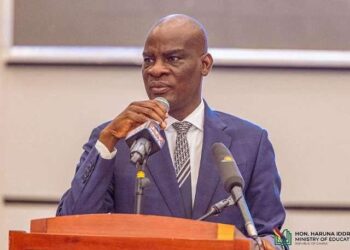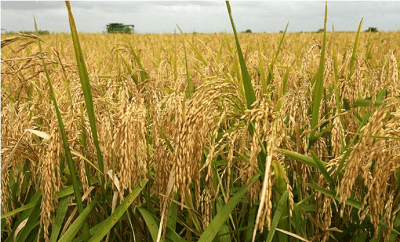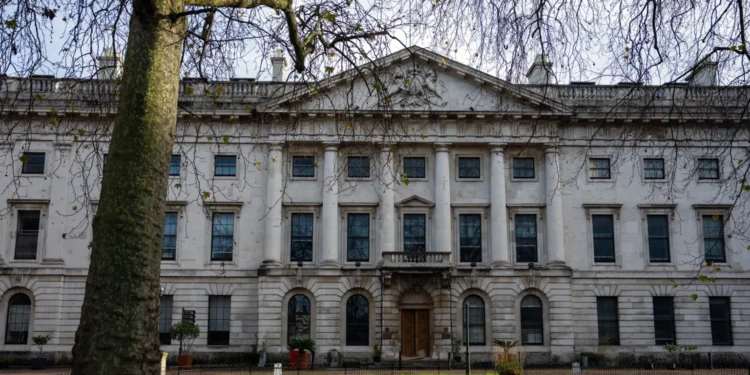President John Dramani Mahama has called for an urgent and inclusive national consensus on education reform in Ghana, emphasizing that the country’s education system must evolve to meet the demands of the 21st century.
Speaking as the Special Guest of Honour at the launch of the National Education Forum at the Volta Serene Hotel in Ho, President Mahama expressed his commitment to building an education system that is relevant, equitable, and transformative.
Under the theme Transforming Education for a Sustainable Future, the forum seeks to bring together stakeholders from government, civil society, faith-based organizations, educators, students, and the private sector to deliberate on the pressing challenges and opportunities within the country’s education sector.
The President emphasized that the purpose of the forum is to create a platform for collective dialogue and policy recommendations that will shape Ghana’s education system for the better.
President Mahama began his address by apologizing to the Catholic Bishops Conference and the Christian Council for what he termed an “unpardonable late invitation” to the forum.
He acknowledged their crucial role in Ghana’s education landscape, as many mission schools across the country are owned and managed by religious institutions.
“We know you are important stakeholders because you own some of the schools, so this educational forum is critical to ensuring we carry everyone along,” President Mahama noted. He reiterated that inclusivity in policy discussions is key to achieving meaningful reforms.
Education Reform as a National Imperative
Highlighting the deteriorating standards of education in Ghana, President Mahama stressed the importance of consensus-building in addressing the sector’s challenges.
He lamented the absence of a unified platform where diverse perspectives could be consolidated into a coherent strategy for the future of Ghanaian education.
“What we have however lacked has been a unified platform on which the various shades of opinion and perspectives can be put into a melting pot and distilled to yield the most optimal outcomes for our children. In the years preceding my coming into office. I had indicated my desire to convene a national dialogue on the best approach to giving Ghanaian children a shot at a better life through quality and relevant education.
“I committed to ensuring that all who are concerned about education in Ghana have an opportunity to contribute meaningfully to shaping the policies and programs that will deliver the kind of education we all want.”
President John Dramani Mahama
He further asserted that education is the “bedrock upon which the progress and prosperity of any nation rests,” adding that Ghana’s inherited education system has failed to keep pace with modern demands and the Fourth Industrial Revolution.
“As the world evolves, so must our education system. What worked in the past no longer suffices for the challenges and opportunities of today and tomorrow. It is this realization that has brought us together today, united in our belief that education reform is not an option but a necessity”.
President John Dramani Mahama
A Collective Responsibility for Education Transformation
President Mahama underscored the need for an inclusive approach to education policy formulation, arguing that government alone cannot overhaul the system.
“The National Consultative Forum on Education is a platform to bring all stakeholders to the table—government, policymakers, teachers, students, parents, traditional leaders, religious leaders, political party representatives, development partners, and civil society”.
President John Dramani Mahama
He urged all participants to approach discussions with open minds, emphasizing that only through dialogue and collaboration can Ghana develop sustainable education policies that will benefit future generations.
The President identified key issues that require urgent attention, including: ensuring quality education for all children, regardless of their location, and providing teachers and schools with the necessary resources to enhance learning outcomes.
Some of the issues also include addressing foundational learning gaps to prepare students for further education and employment, promoting innovative and inclusive teaching methods that foster critical thinking and problem-solving rather than rote memorization and ensuring adequate and sustainable financing for education.
Others are enhancing the role of faith-based organizations in school management, and improving technical and vocational education and training (TVET) to equip students with practical skills for the job market.
He also highlighted the need to grant autonomy to school leaders, free from political interference, while holding them accountable to agreed performance standards. “The second independence day for the education system has come. You can now express your opinions freely,” President Mahama asserted.

Moral and Character Development in Education
Beyond academic excellence, President Mahama stressed the importance of holistic education that nurtures values such as honesty, creativity, and responsible citizenship.
“Quality education does not only develop intellect but also ensures holistic personality development. The heart promotes moral and social orientation, necessary for strengthening societal and family values. The hand develops skills and competencies needed for national productivity”.
President John Dramani Mahama
Citing American author Ellen G. White, he reiterated the need for a broader vision for education: “True education means more than just the pursuit of a certain course of study. It means lifelong learning and prepares students for the joy of service in this world.”
President Mahama assured stakeholders that the forum’s recommendations would not remain symbolic but would form the foundation for comprehensive reforms.
“We will prioritize the actionable reforms proposed here with clear timelines and measurable outcomes to guide our steps,” he promised, adding that regular progress updates would be shared with the public to enhance transparency.
He also welcomed the Education Minister’s announcement that Parent-Teacher Associations (PTAs) can now engage with schools, describing it as a step towards improved school management and stakeholder participation.
Additionally, he emphasized the importance of teacher transformation and research-based decision-making in policy implementation.
He recalled that initiatives such as the Transforming Teacher Education and Learning (TTEL) Project were introduced under his administration to enhance teacher training, and he committed to ensuring similar reforms extend across the entire education system, including TVET.
President Mahama concluded his speech by challenging stakeholders to envision an education system that is inclusive, dynamic, and forward-thinking.
“We must envision an education system where every child, regardless of background, has the opportunity to reach their full potential. One where teachers are supported and empowered to inspire future generations. One where schools are centres of innovation and learning, preparing students not just for exams but for lifelong success.”
President John Dramani Mahama
He officially declared the National Education Forum open, urging participants to engage constructively and prioritize solutions that will drive Ghana’s education sector forward.
The National Education Forum spanning from 18th to 20th February 2025 sets the stage for a renewed commitment to tackling Ghana’s education challenges through inclusive dialogue and policy formulation.
As stakeholders deliberate on critical reforms, President Mahama’s call for a shared vision underscores the urgency of ensuring that Ghana’s education system is fit for purpose in a rapidly changing world.
The forum is expected to produce recommendations that will shape the nation’s education policies in the coming years.
READ ALSO: Sinking Fund Boost: Expert Highlights Impact on Ghana’s Domestic Bonds






















